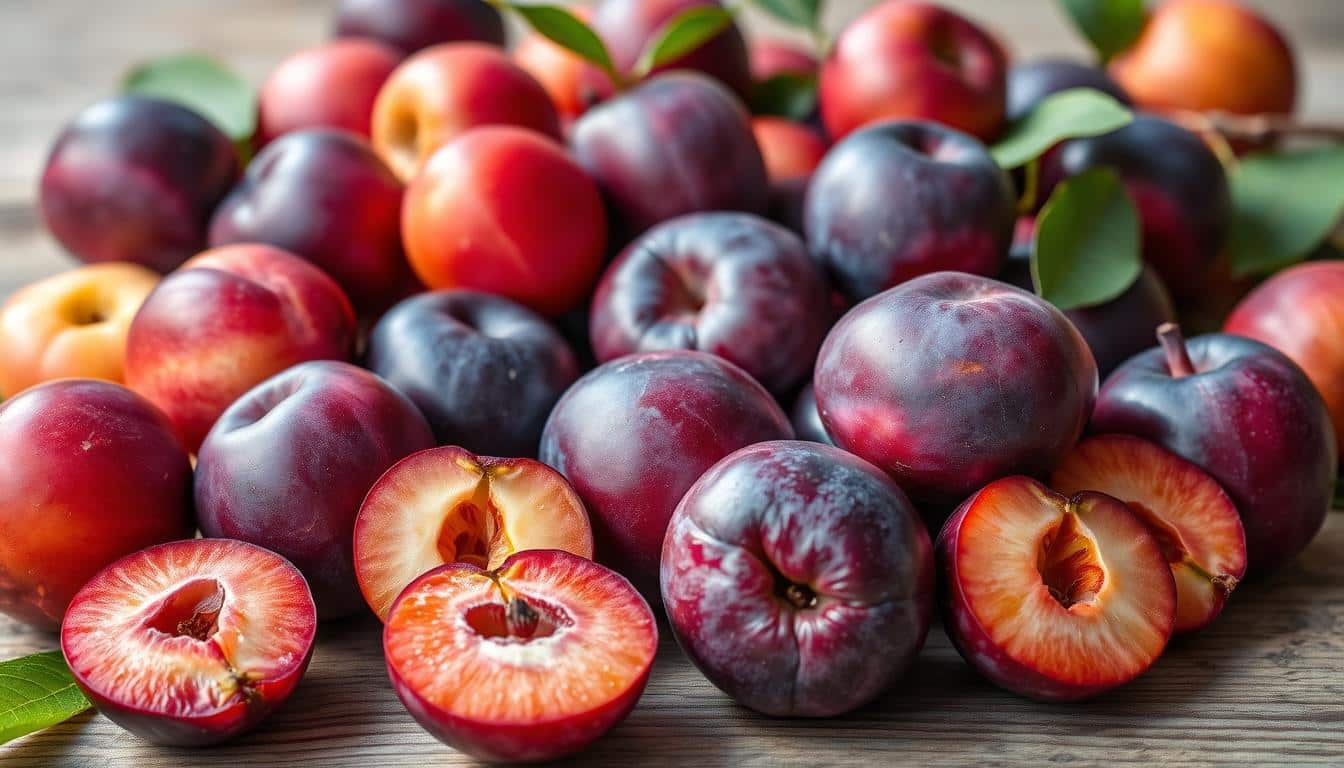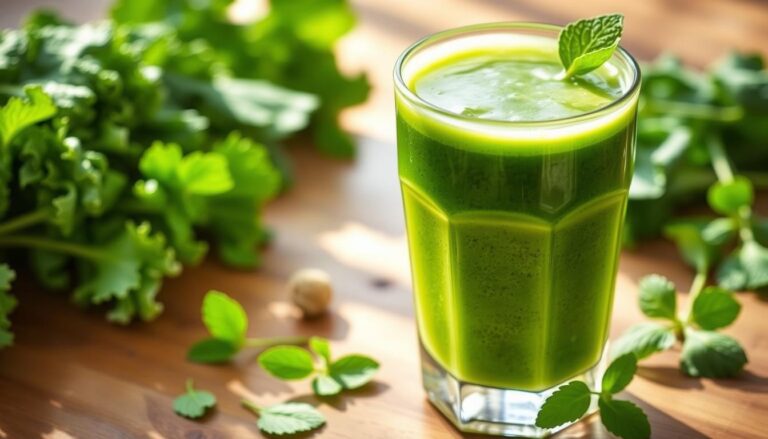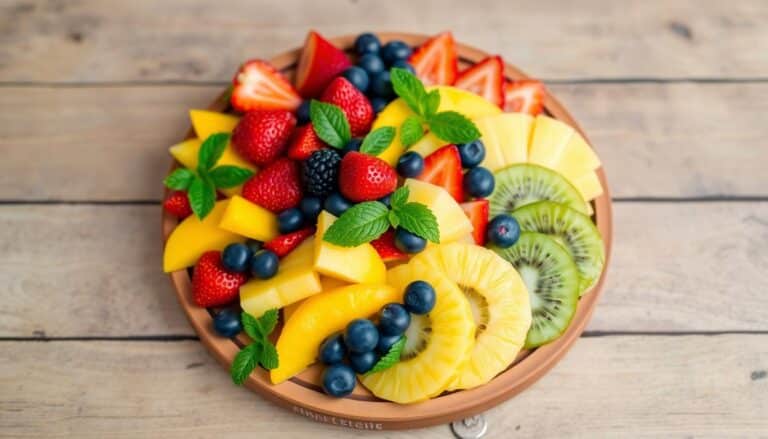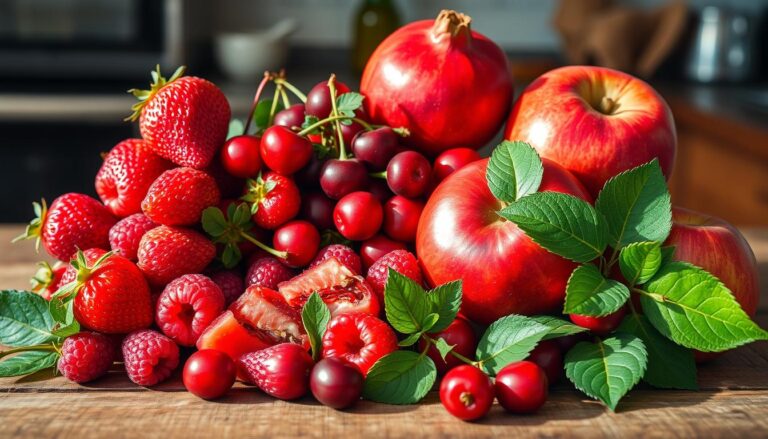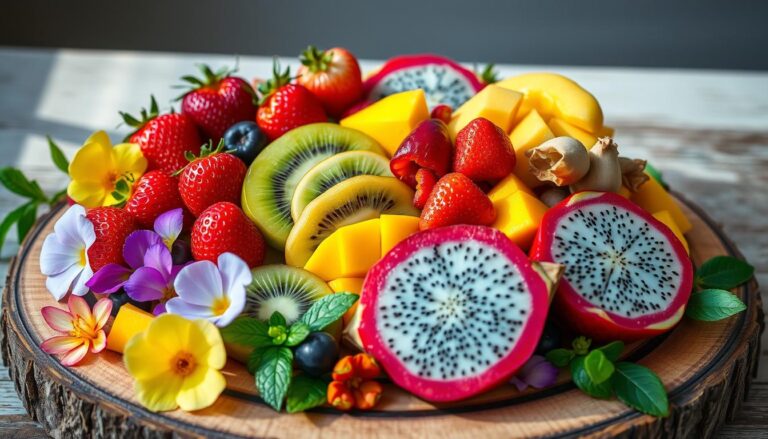Plum Fruit 10 Reasons To Love Plum Fruit
Welcome to the world of plum fruit! These vibrant fruits are not just tasty but also full of health benefits. With over 200 varieties, plums add color and flavor to your diet.
Plums are more than just a fruit. They are packed with nutrients and health benefits. Whether you need a sweet snack or a natural health boost, plums are perfect.
Key Takeaways
- Plum fruit contains over 200 unique varieties worldwide
- Rich in essential nutrients and powerful antioxidants
- Can help reduce risk of chronic diseases
- Versatile fruit with multiple culinary and health applications
- Supports overall wellness through natural compounds
Understanding Plum Fruit Varieties and Origins
Plums have won the hearts of fruit lovers everywhere. They come in a variety of flavors, colors, and are good for you. Exploring plums takes you on a journey through history and across the globe.
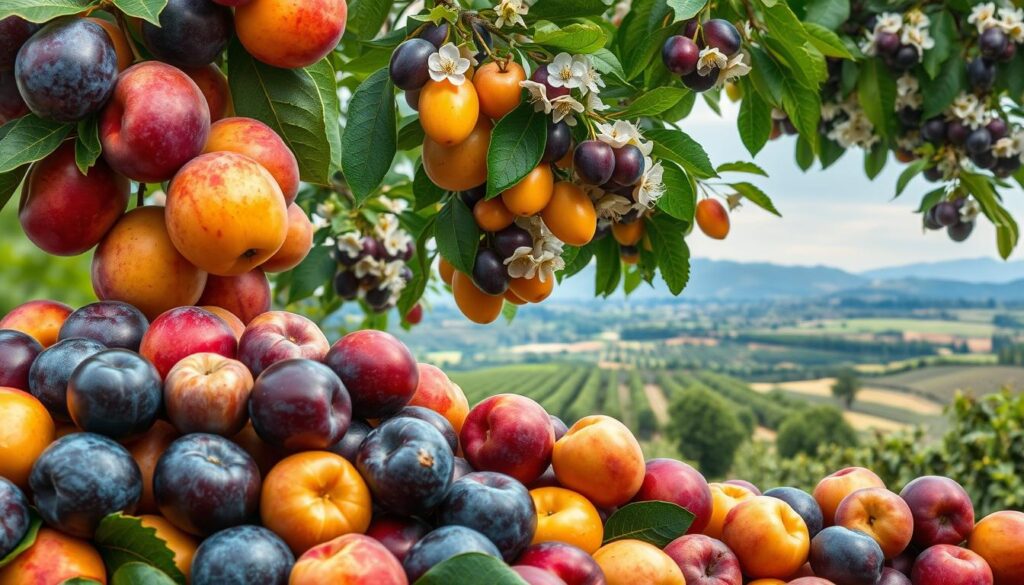
Plum varieties are found all over the world. Each place has its own special plums. From sweet Japanese plums to tart European ones, there’s a story behind each fruit.
Popular Plum Varieties Worldwide
There are many plum varieties to discover:
- Santa Rosa: A popular Japanese plum with vibrant red skin
- Damson: A classic European variety perfect for preserves
- Mirabelle: A small, sweet French plum cherished by chefs
- Black Beauty: A rich, dark organic plum with exceptional flavor
Historical Background of Plum Cultivation
People have been growing plums for thousands of years. Archaeology shows us that plums were important to ancient cultures. They were valued for food and cultural significance.
Global Distribution and Production
Today, plums are grown all over the world. Here are the top plum-producing countries:
| Country | Annual Production (Metric Tons) |
|---|---|
| China | 6,763,000 |
| Romania | 1,462,213 |
| Serbia | 1,289,639 |
| United States | 648,541 |
Whether you want to grow plum trees or just enjoy them, plums are special. They offer great taste, health benefits, and a rich history.
Nutritional Profile of Fresh Plums
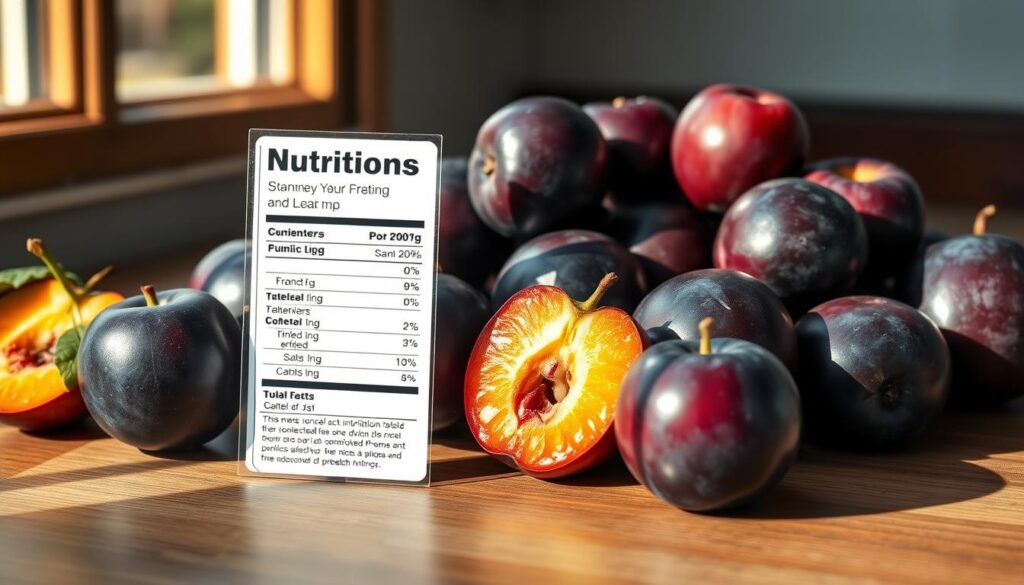
Plums are packed with essential nutrients in a small, tasty package. They offer a mix of vitamins, minerals, and compounds that boost health. A plum, weighing about 66 grams, is a low-calorie snack with great nutritional value.
Here’s why plums are a great choice for those who care about their health:
- Only 30.4 calories per plum
- 7.5 grams of carbohydrates
- 1 gram of dietary fiber
- Rich in essential vitamins and minerals
Plums have a lot of micronutrients that help your body work well. They are full of:
| Nutrient | Amount per Plum | Benefit |
|---|---|---|
| Vitamin C | 6.3 mg | Supports immune system |
| Vitamin K | 4.4 mcg | Promotes bone health |
| Potassium | 104 mg | Supports heart function |
Plum nutrition is more than just basic vitamins. These small fruits are nutritional powerhouses that fit well in many diets. They are perfect for a low-calorie snack or a fruit rich in nutrients, offering great health benefits with every bite.
Powerful Antioxidant Properties
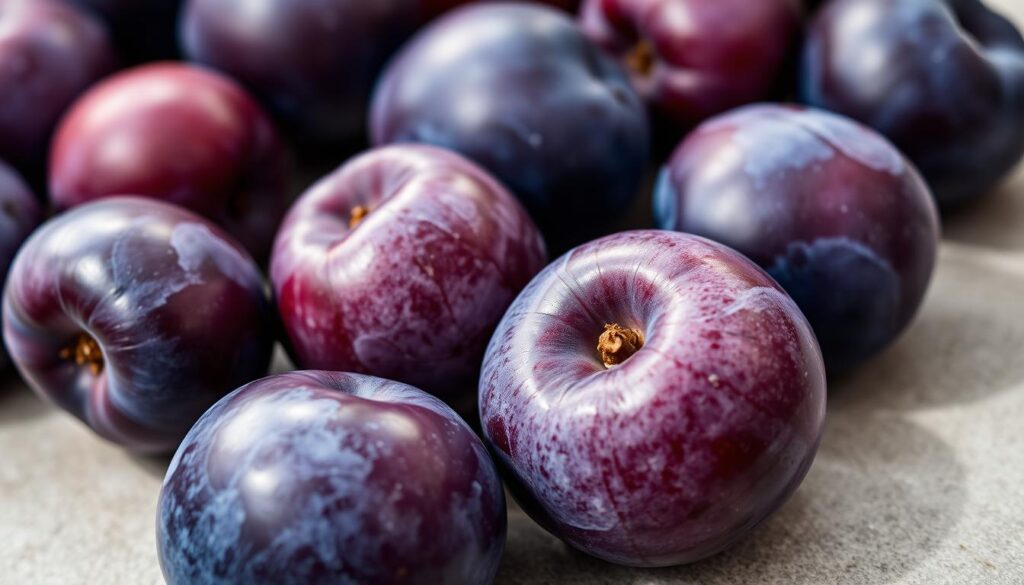
Discover the amazing health benefits of plums. They have strong antioxidant properties. These fruits protect your body from harmful free radicals and help keep you healthy.
Exploring Antioxidants in Plums
Organic plums are full of unique antioxidants. These protect your body from cellular damage. The main antioxidants in plums are:
- Anthocyanins (responsible for vibrant purple and red colors)
- Chlorogenic acids
- Quercetin
Neutralizing Free Radicals
Free radicals can harm your cells, leading to early aging and health issues. Plums help fight these harmful molecules.
| Antioxidant | Primary Function | Health Impact |
|---|---|---|
| Anthocyanins | Cellular protection | Reduces inflammation |
| Chlorogenic acids | Metabolic support | Improves insulin sensitivity |
| Quercetin | Oxidative stress reduction | Supports heart health |
Anti-Aging Defense
Eating organic plums helps fight aging. These antioxidants protect your cells, slowing down aging and keeping you vital.
Adding plums to your diet is easy. They’re a tasty way to boost your body’s natural defenses.
Digestive Health Benefits
Plums are a powerhouse of digestive wellness. They offer remarkable health benefits that support your gut’s overall function. These delicious fruits pack a nutritional punch that can transform your digestive system.
The plum nutrition profile includes several key components that promote digestive health:
- High dietary fiber content
- Natural laxative compounds
- Sorbitol and isatin
- Prebiotic properties
Fiber is crucial for maintaining regular bowel movements. A single plum contains approximately 1-2 grams of dietary fiber. This helps prevent constipation and supports smooth digestive processes. The natural sugars in plums, like sorbitol, act as gentle stool softeners.
Prunes, dried plums, are known for their digestive benefits. They contain higher concentrations of beneficial compounds that stimulate intestinal movement. Research shows that eating plums can help:
- Improve gut microbiome health
- Reduce inflammation in the digestive tract
- Support healthy bacterial growth
- Regulate bowel functions
Your digestive system will thank you for adding plums to your diet. These fruits offer a delicious, natural way to maintain optimal gut health and promote smooth, comfortable digestion.
Heart Health and Cholesterol Management
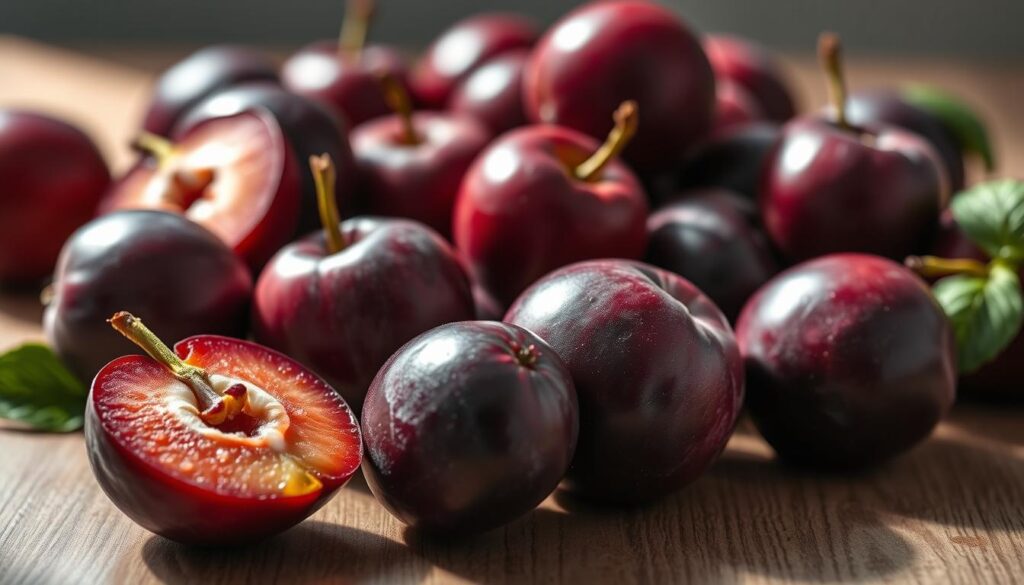
Plums are a tasty treat for your heart. They are full of nutrients that help your heart stay healthy. Eating plums can be a great way to keep your heart in top shape.
Cardiovascular Protection Mechanisms
Plums have special properties that help your heart. They contain compounds that protect your heart and blood vessels:
- Reduce inflammation in blood vessels
- Support healthy blood circulation
- Provide antioxidant protection
Blood Pressure Regulation
Plums are rich in potassium, a key mineral for blood pressure. Eating them regularly can help keep your blood pressure in check.
| Nutrient | Amount per 100g | Heart Health Benefit |
|---|---|---|
| Potassium | 157 mg | Supports blood pressure control |
| Fiber | 1.4 g | Helps lower cholesterol |
| Flavonoids | High content | Reduces cardiovascular inflammation |
Cholesterol-Lowering Potential
The health benefits of plums also include lowering cholesterol. Studies show that plums’ natural compounds can lower bad cholesterol. This may lower your risk of heart disease.
Adding plums to your meals is a tasty way to support your heart. These fruits are packed with nutrients for a healthy heart.
Blood Sugar Control and Diabetes Prevention
Plums are great for managing blood sugar levels. They offer a natural way to keep glucose levels healthy. This makes them perfect for those watching their blood sugar.
The plum nutrition profile has key parts for blood sugar control:
- Low glycemic index (GI) which prevents rapid blood sugar spikes
- High fiber content that slows sugar absorption
- Natural compounds that support insulin sensitivity
Studies show plums might lower the risk of type 2 diabetes. The unique mix of nutrients in plums supports metabolic health. The fruit’s sugars are balanced by fiber, which slows down glucose absorption.
For those at risk of diabetes or looking to prevent it, plums are a good choice. They help keep blood sugar stable, making them a great part of a balanced diet.
Adding plums to your diet can offer big benefits for blood sugar control and metabolic health in the long run.
Bone Health and Osteoporosis Prevention
Plums are great for your bones. They have nutrients that help keep your bones strong and dense. This makes your skeleton more robust.
Explore the benefits of plums for your bones. These small fruits are packed with nutrients that support bone health. Studies show plums can help prevent bone loss, which is important for women after menopause.
Mineral Content Supporting Bone Strength
Plums are full of minerals that are good for your bones:
- Vitamin K – crucial for bone metabolism
- Boron – supports bone density
- Potassium – helps prevent calcium loss
- Magnesium – enhances bone mineral structure
Research on Bone Preservation
Studies show dried plums can fight bone loss. Women after menopause who ate dried plums saw better bone health. This suggests they might protect against osteoporosis.
Eating plums can help keep your bones strong. Adding plums to your diet is a smart way to support your bone health all your life.
Immune System Support and Disease Prevention
Organic plums are a great way to boost your immune system. They are full of nutrients that help keep your body healthy. Eating plums can naturally strengthen your body’s defenses.
Vitamin C in plums is key for a strong immune system. One serving gives you a lot of vitamin C you need daily. This vitamin helps fight off infections. Plus, plums’ antioxidants protect your cells from damage.
- Rich in immune-boosting vitamin C
- Contains powerful antioxidants
- Supports natural disease prevention
- Helps reduce inflammation
Studies show plums can make your immune system stronger. Adding plums to your meals gives your body more health benefits. Their anti-inflammatory effects may lower the risk of chronic diseases.
Plums are a tasty way to help your immune system. You can enjoy them fresh, dried, or in many recipes. They offer a natural and delicious way to support your body’s health.
Skin Health and Anti-aging Benefits
Discover the secret to glowing skin with plums. These fruits are packed with nutrients that can change your skincare game. Plum nutrition is a natural way to keep your skin looking young and vibrant.
Plums have amazing antioxidants that are great for your skin. Vitamin C and other compounds protect your skin from harm and make it look younger. Here are some key nutrients your skin can get from plums:
- Vitamin C for collagen production
- Antioxidants that combat free radical damage
- Hydrating properties that support skin elasticity
Studies show that plums can help:
- Reduce visible signs of wrinkles
- Protect against UV-induced skin damage
- Improve overall skin texture and tone
| Plum Nutrient | Skin Health Benefit |
|---|---|
| Vitamin C | Boosts collagen production |
| Antioxidants | Fights skin-aging free radicals |
| Vitamin A | Supports skin cell regeneration |
Eating plums can help your skin fight off damage. Your skin will thank you for this delicious and nutritious approach to maintaining a youthful, healthy glow.
Storage and Selection Tips for Fresh Plums
Finding the right plums can be a challenge, but knowing how to pick and store them is key. Plums are in season from late May to October. This time allows you to enjoy their sweet and tangy taste.
- Look for plums with vibrant, rich color
- Gently press the fruit – it should yield slightly under your thumb
- Avoid fruits with bruises, soft spots, or wrinkled skin
- Choose plums that feel heavy for their size
Choosing Ripe Plums
Choosing ripe plums is important. Color and firmness are key signs. Each type ripens differently, but a ripe plum will have a deep color and be slightly soft.
Proper Storage Methods
| Plum Ripeness | Storage Method | Expected Shelf Life |
|---|---|---|
| Unripe Plums | Room temperature, away from direct sunlight | 3-5 days |
| Ripe Plums | Refrigerator crisper drawer | 3-7 days |
Extending Shelf Life
To enjoy your plums longer, store them right. Refrigeration slows down ripening. Room temperature helps unripe plums get sweeter. If you have too many ripe plums, freeze them or make preserves.
Conclusion
Exploring the world of plum fruit shows us how nutritious and beneficial they are. These small fruits are packed with health benefits that can change your diet. They help your heart and make your skin glow, making them a tasty way to improve your health.
Trying out plum recipes can spark your creativity in the kitchen. You can snack on fresh plums, blend them into smoothies, or add them to savory dishes. Plums are a great choice for natural nutrition, thanks to their versatility.
Make plums a part of your diet to support your health naturally. Their nutritional value and taste make them perfect for anyone looking to eat well. With many varieties and ways to enjoy them, plums are special for everyone.
Choosing plums can be a simple step towards better health. They boost your immune system and help with digestion, making them a nutritional powerhouse. Plums should be in your kitchen and on your plate.

